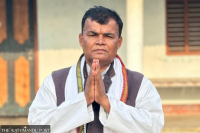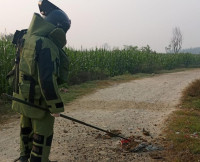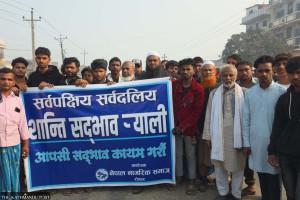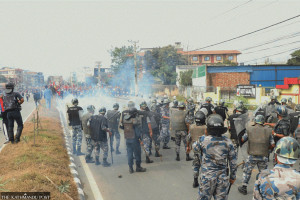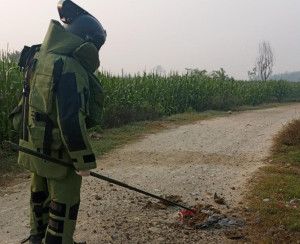Madhesh Province
Husband, in-laws accused of torturing woman over dowry
Police say they are working to resolve dispute. Dowry-related violence continues in the Tarai despite legal bans and awareness campaigns against the gift-giving custom.
Bidyananda Ram
Twenty-eight-year-old Sanjita Sah, who married through a court after meeting her partner on Facebook, says she has been left “homeless and terrorised” after being subjected to violence by her husband and in-laws over dowry demands.
After a three-year relationship, Sanjita married 30-year-old Sandesh Sah of Makaritol in ward 3 of Rupani Rural Municipality in May, 2024, at the Parsa District Court. According to her, the marriage remained smooth only until her mother-in-law Kiran Kumari Sah and father-in-law Dharma Dev Sah learned about the court marriage. The couple had planned a social wedding a year later, with both families preparing to formalise the union according to traditional rites.
It was during these discussions, Sanjita alleges, that the situation worsened. “My father-in-law called my father and demanded 10 tola of gold, Rs1.5 million in cash, and a four-wheeler. I told them that if dowry was the issue, they should have said so before marriage. Why marry me at all?” she said. “From then on, our relationship began to deteriorate and Sandesh gradually stopped talking to me.”
Hoping to mend relations, Sanjita—originally hailing from ward 7 of Kanchanrup Municipality in Saptari and currently working as a nurse at a school in Sindhuli—went to her in-laws’ home last Tuesday. “But they refused to let me enter,” she alleged.
Villagers arranged a small shed for her to sleep in, but she spent the first night hungry. Since then, neighbours have been providing her food.
“My husband had promised to stand by me for life, but he has changed completely under family pressure. I am trapped between humiliation and violence. They are now inflicting physical and mental torture to force me out of even the shed,” said Sanjita.
Sanjita filed a complaint of domestic violence at the District Police Office in Saptari last Thursday. Earlier, she had also filed a case at the Saptari district court against her husband, mother-in-law and father-in-law. On July 7, 2025, Judge Mohan Bahadur Adhikari issued an interim protection order requiring the family to provide her safe accommodation, food and clothing, and to refrain from verbal abuse or physical assault as per section 6 of Domestic Violence (Offence and Punishment) Act 2009. The victim complains that the order has not been enforced.
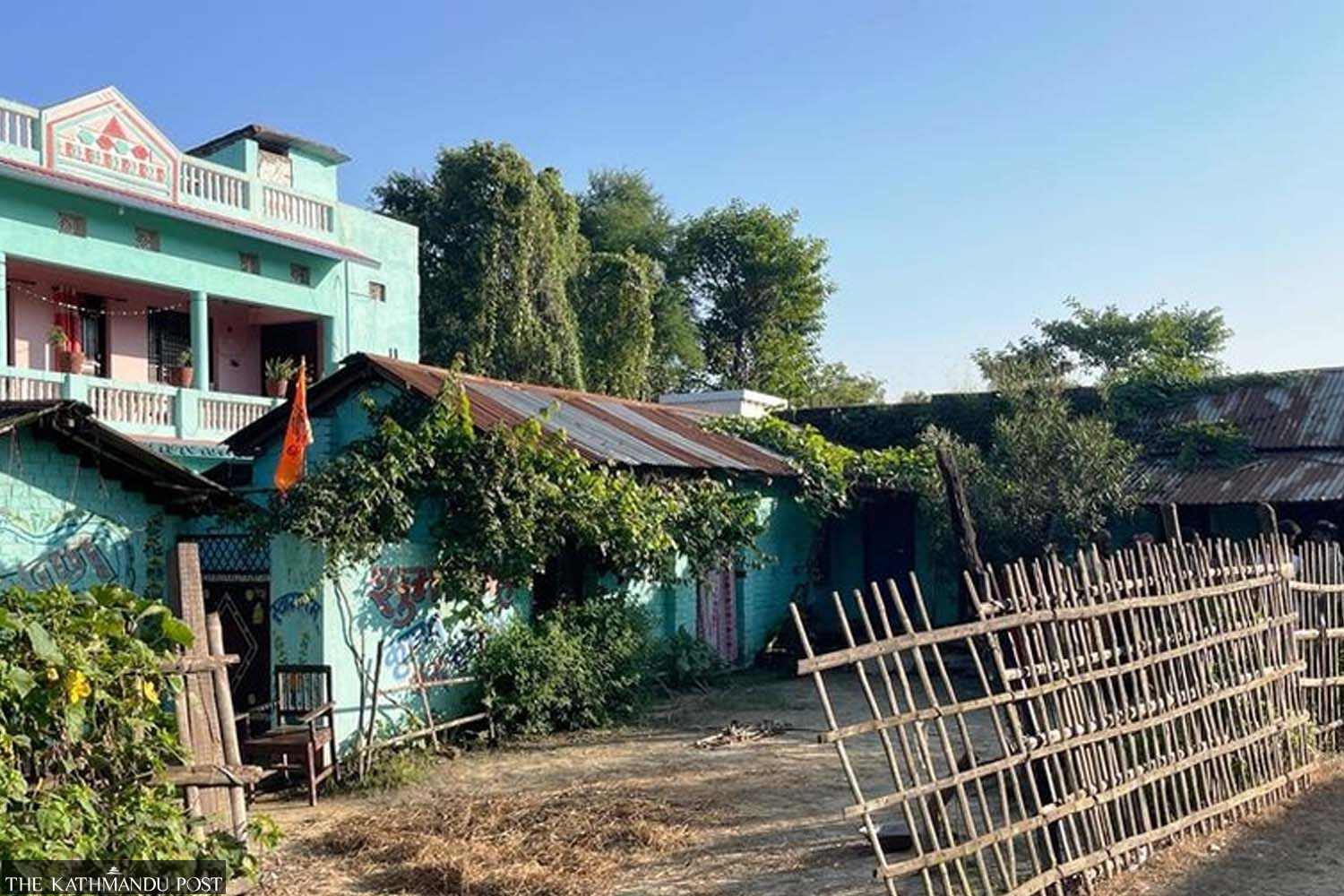
Sanjita’s father-in-law Dharma Dev, a schoolteacher, denies all allegations. “Her accusations are baseless. I neither asked for dowry nor inflicted violence. The dispute is strictly between husband and wife. They are unable to reconcile,” he said.
Sandesh, an engineer employed at a private firm in Parsa, echoed that claim. “At first her behaviour was fine, but it changed later. I have already decided not to live with her,” he said.
Police said efforts are on to mediate and settle the dispute. “We are trying to reach a settlement as per Sanjita’s request,” said Deputy Superintendent of Police Dambar Bahadur Puri. “But Sandesh has been avoiding police contact, delaying the process. His father is in touch and has said the issue will be resolved within ten days.”
Dowry-related violence remains a persistent concern in the southeastern Tarai despite legal prohibitions and rising public awareness. According to the women's rights activists, patriarchal mind-set, poverty, poor implementation of prevailing laws, lack of awareness and delay of justice are leading causes behind the unchecked cases of domestic violence in the country.
Women seeking justice for domestic violence or property partition wait years—often more than five and sometimes upwards of ten years—for the court to resolve their cases and fully implement the decision. The delays in case processing come at a cost to the women, who endure more harassment, financial strain, and loss of contact with their children as they wait for the justice system to take action.
Sanjita fears her case will become another ignored statistic unless authorities step in. “I want justice,” she said.




 11.23°C Kathmandu
11.23°C Kathmandu
